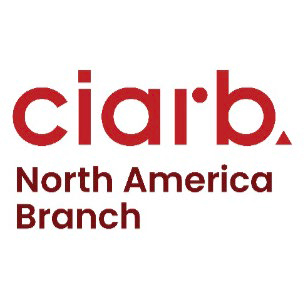
by Lionel M. Schooler, FCIArb
Jackson Walker LLP1
Introduction. In WeBuild USA v. WSP USA, _______ F.4th _______, 2024 WL 3463380 (2d Cir. 2024), the United States Court of Appeals for the Second Circuit addressed the issue of the authority of a United States District Court to address a discovery request available to a party under 28 U.S.C. §1782 that is participating in an ICSID arbitration. Applying the U.S. Supreme Court’s 2022 decision in ZF Automotive v. Luxshare, Ltd., the Court held that such discovery was barred.
Background.
Webuild and three other entities formed an Italian entity, Grupos Unidos por el Canal S.A., in connection with work to be performed for a proposed expansion of the Panama Canal. In this case, the relationship in question was governed by a bilateral investment treaty between Panama and Italy. The Project contract had been awarded to Grupos Unidos by the Panama Canal Authority (ACP).
In this case, Webuild contended that ACP had failed to provide complete and accurate information during the bidding and procurement process about the expansion’s financing, nature, duration and scope. As a result, Webuild initiated an ICSID arbitration, claiming that ACP had breached the agreement it had with Grupos Unidos. As part of the ICSID arbitration process, Webuild sought to obtain documentation from WSP USA about the information provided by it to ACP and its engineering consultant Parsons Brinkerhoff (subsequently owned by WSP).
To facilitate preparation of its claim, Webuild contended that it was entitled to obtain documentation from WSP via subpoena pursuant to 28 U.S.C. §1782, which governs “[a]ssistance to foreign and international tribunals and to litigants before such tribunals.” Under §1782, a U.S. District Court may order a person who resides in its district to testify in or produce documents for use in a proceeding in a foreign or international tribunal. The District Court granted an initial ex parte application for discovery in May 2022. Panama then intervened to quash the subpoena.
Intervening Ruling by the U.S. Supreme Court. While the motion to quash was pending, the U.S. Supreme Court issued its decision in ZF Automotive US Inc. v. Luxshare Ltd., 596 U.S. 619 (2022), which addressed specifically the scope and permitted invocation of §1782 in a United States District Court for purposes of obtaining discovery in an international arbitration (governed by UNCITRAL Rules). The specific issue addressed in ZF Automotive was whether the phrase “foreign or international tribunal” in Section 1782 meant only governmental and intergovernmental adjudicative bodies, or whether it also encompassed private arbitration proceedings lacking any direct government oversight.
The ZF Automotive Court held that the applicable statutory language meant that the tribunal in question had to belong to a foreign nation, not just be located in that nation. It further held that the wording that a tribunal must “[belong] to a foreign nation” meant that such a tribunal must possess “sovereign authority” conferred by that nation. The Court further reasoned that the international tribunal identified in Section 1782 necessarily implicated the governmental authority of the adjudicative body. From there, the Court focused on Section 1782’s use of the phrase “international tribunal,” deciding that such a phrase necessarily involved two or more nations, i.e., that one or more sovereigns had imbued the tribunal in question with official power to adjudicate disputes. The Court accordingly declared that U.S. federal courts could not aid private bodies which adjudicate purely private disputes abroad.
Lower Court’s Ruling. Armed with this decision, the District Court ruled that Grupos Unidos was not entitled to enforce the subpoena in question to obtain documentation from WSP pursuant to §1782.
Issue Presented. The issue presented on appeal was whether the tribunal conducting the ICSID arbitration was “quintessentially an international tribunal” sufficiently tied to a governmental entity, either by authority or by funding from governmental authorities, to justify use of §1782 to obtain discovery in a U.S. federal court.
Court’s Analysis.
The Second Circuit determined that the tribunal in this case did not qualify as a foreign or international tribunal as required by §1782. Turning to the ZF Automotive ruling, the Second Circuit first focused upon the extent to which that ruling, which involved an arbitration conducted under UNCITRAL Rules, would apply to this case, which was a proceeding governed and administered by ICSID Rules.
Webuild contended that this difference was critical, asserting that ICSID (a permanent institution) imbues its Tribunals “with governmental authority,” and the ICSID Convention controls the formation of the Tribunals; it further contended that ICSID is itself a permanent institution, and that sovereign states help to fund the ICSID Centre. Webuild also contended that the ICSID Convention’s post-award procedures distinguished it as an “international tribunal.”
The Court rejected these arguments. It disapproved of conflating the ICSID Convention with the tribunal in question, because ICSID Centre does not fund the Tribunal, whose fees and expenses are paid by the parties. It further rejected Webuild’s contention that the manner in which ICSID Awards are reviewed establishes some form of governmental authority over such awards. Rather, the Court concluded that the ICSID structure was not imbued with governmental authority, particularly in the selection of arbitrators, given that in this case, the parties had agreed on the arbitrators to be appointed, and no member of that Tribunal was appointed by the ICSID chairman.
The Second Circuit therefore affirmed the decision of the District Court to interpret §1782 as disallowing enforcement of the subpoena in question.
Conclusion. The Second Circuit’s decision in this latest case reinforces the inviolability of the cordon protecting U.S. District Courts from becoming enmeshed in international arbitrations, sending the clear message that such disputes will not be welcome in “our backyard.”
1 Mr. Schooler is former Board Member of the North American Branch of the Chartered Institute of Arbitrators, and the immediate Past Chair of its Texas Chapter.


